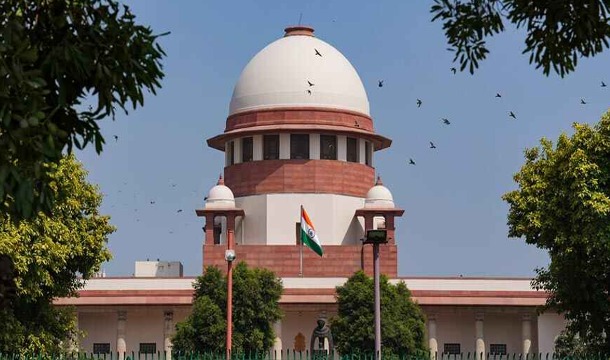
The Supreme Court on Thursday refused to hear a petition challenging the constitutional validity of Section 8(3) of the Representation of the People Act, 1951, which provides for the automatic disqualification of a legislator from parliament or a state assembly upon conviction in a criminal case.
A bench of Chief Justice of India (CJI) DY Chandrachud and Justices PS Narasimha and JB Pardiwala stated that the petitioner is not personally affected by the provision and the Court would not hear the challenge.
“How have you been affected? Come here if you are disqualified due to a conviction. Not right now. Either withdraw it or we will dismiss it. We will only hear the aggrieved person,” the bench stated.
The petitioner’s lawyer then decided to withdraw the plea.
The plea gained importance because it was filed at a time when Congress leader Rahul Gandhi was disqualified from the Lok Sabha following a Surat court judgement that found him guilty of criminal defamation and sentenced him to two years in prison.
The plea filed by Ph.D. scholar and social activist Aabha Muralidharan’s stated that Section 8(3) is unconstitutional because it restricts an elected Member of Parliament (MP) or Member of Legislative Assembly (MLA) from freely discharging their duties cast upon them by the voters of their respective constituency.
Section 8(3) of the 1951 Act stated, (3) A person convicted of any offence and sentenced to imprisonment for not less than two years [other than any offence referred to in sub-section (1) or sub-section (2)] shall be disqualified from the date of such conviction and shall continue to be disqualified for a further period of six years after his release.
The plea, filed through lawyer Deepak Prakash and drawn by advocate Sriram Pakkat, stated that Section 8(3) contradicts sub-section (1) of Sections 8, 9, 9A, 10, and 10A of the 1951 Act.
The petitioner said that when assessing disqualification under Chapter III of the 1951 Act, factors such as nature, seriousness, role, moral turpitude, and the role of the accused should be considered.
The plea emphasised that subsection (1) of Section 8 of the 1951 Act clearly categorises the charges for disqualification of MPs, taking into account the nature of the offences.
However, the petitioner contended that sub-clause (3) of the same section provides for a blanket automatic disqualification based on the quantum of sentencing and imprisonment, which is self-contradictory and creates ambiguity as to the proper procedure for disqualification.
“Moreover, the 1951 Act further categorises the nature of cases wherein disqualification is permissible as enumerated u/s 8A, 9, 9A, 10, and 10A, which again specify the nature of the offences, for disqualifying a member and is in contradiction with sub-clause (3) of Section 8 of the 1951 Act,” the plea stated.




